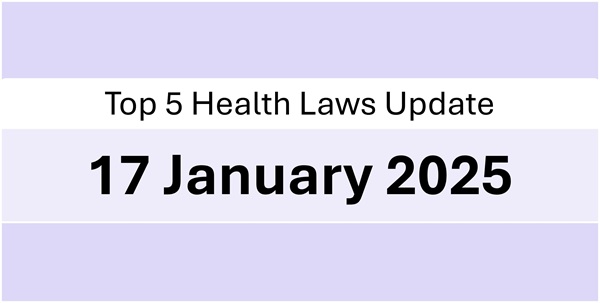Dear Readers, we are happy to share the most interesting legal and policy updates concerning health industry that we read today. we hope you enjoy reading it.
1. India’s Rajasthan High Court (RHC) recently ruled that “a laboratory report can be countersigned only by a registered medical practitioner with a post-graduate qualification in pathology.” The court made this observation while hearing a petition that sought to restrict non-MBBS practitioners from signing medical laboratory reports.
Source: bit.ly/3WnKfWx
2. India’s Central Drugs Standard Control Organization (CDSCO) recently issued a letter to the Principal Commissioner of Customs, stating that the import of pre-owned, refurbished, or second-hand medical devices into the country is prohibited. CDSCO clarified that, as of now, there are no specific provisions in place for the regulation of such devices, and therefore, customs authorities have been directed to halt the importation of these items.
Source: bit.ly/3Ce6F5S
3. The Government of India has revised the Government of India (Allocation of Business) Rules, 1961, to designate the Department of Health Research (DHR) under the Ministry of Health and Family Welfare (MoHFW) as the authority responsible for Health Technology Assessment (HTA) matters. This change underscores DHR’s role, which already oversees Health Technology Assessment India (HTAIn), in evaluating the appropriateness and cost-effectiveness of both existing and new health technologies in the country as part of its “Research Governance” mandate.
Source: bit.ly/40hgGax
4. The Pharmacy Council of India (PCI) has updated the number of blocked pharmacists on its DIGI-PHARMed portal, increasing the list from 45,355 to 91,586. Affected pharmacists are required to re-register for re-verification. This action addresses issues with duplicate, invalid, or incorrect profiles on the platform, which supports pharmacy education by providing centralized services nationwide.
Source: bit.ly/42cCXc5
5. The World Health Organization has released a draft document to guide the adoption of continuous manufacturing (CM). This document covers finished products, as well as excipients and active pharmaceutical ingredients (APIs) produced through a CM process. The WHO is inviting feedback from stakeholders via its online platform, with comments due by 7 March 2025.
Source: bit.ly/42dNWSD

